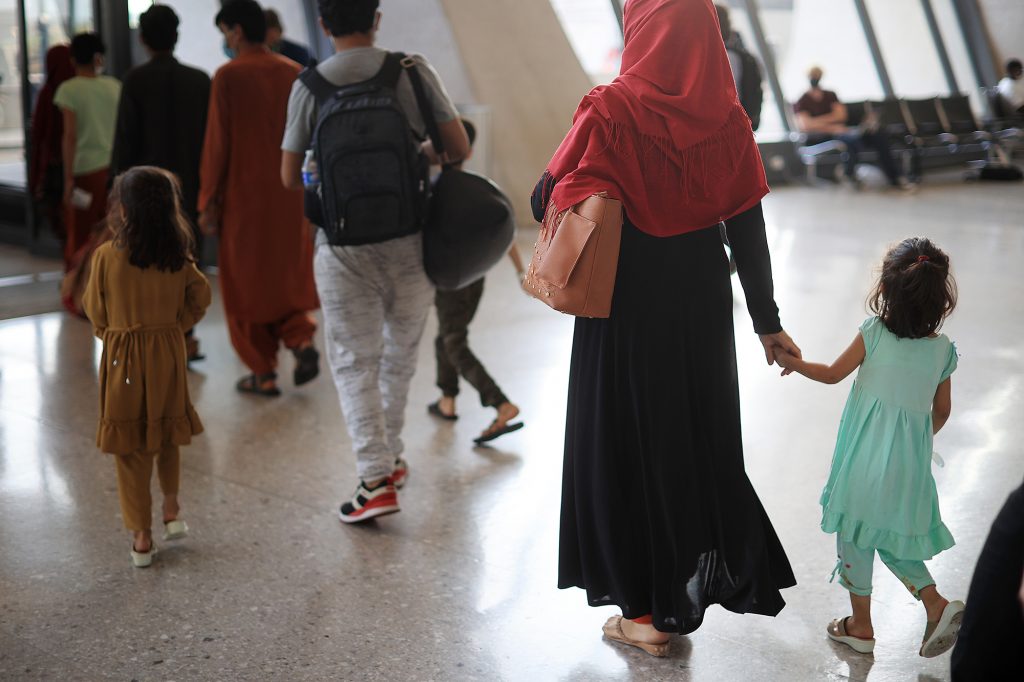On August 15th, the president of Afghanistan, Ashraf Ghani, fled the nation and a militant group, the Taliban, took control over the country. According to the UN Refugee Agency, an estimated 600,000 Afghans have been newly displaced in the country this year. Due to the recent power shift within Afghanistan, there has been an influx in Afghan refugees. The UNHRA also states that many Afghan refugees flee to neighboring countries like Iran and Pakistan, which together have more than 2.2 million Afghan refugees.
Among other nations, the United States has also had a history of accepting Afghan refugees, having taken in more than 20,000 in the past 20 years, according to the American University in Washington D.C. Based on studies by the Council on Foreign Relations, the refugee process to get accepted into the United States generally takes from 18 months to 2 years. HIAS Pennsylvania, a refugee resettlement program working with Afghan refugees in Philadelphia, writes on the process for Afghan refugees after being admitted into the United States: “the persons landing will not necessarily remain in Philadelphia. All evacuees, unless they are American citizens or long-term permanent residents (green card holders), will be tested for COVID-19 and then sent to a military base to receive health screenings, immunizations, and, as necessary, background checks and further processing. Once these are complete, the evacuee will be sent to their final destination for resettlement. The processing is expected to take between fifteen and thirty days.” Bethany Christian Services, another refugee resettlement program in Philadelphia, states on their website that they are projected to resettle 450 Afghan refugees during this refugee crisis.
I briefly interviewed the Pre-arrival Associate at Exodus Refugee Immigration, a refugee resettlement non-profit in Indianapolis that is also working with Afghan Refugees coming to the United States. My interviewee, when asked about projected numbers of Afghan refugees working with Exodus, called it a “deceptively difficult question to answer,” Exodus Refugee Immigration explained. Agencies like Exodus are given funding based on the number of refugees they are expected to resettle, but in a crisis like this, they are not given much time to prepare.
“[Exodus is] in constant communication with our global and National partners who are doing [the] processing and allocating of these new refugees, and we are currently preparing to receive up to 250 Afghan refugees in addition to our predetermined number,” the Exodus Refugee Immigration employee shared. My final question to my interviewee was “Is there anything else you would like to add on the process that Afghan refugees go through to be resettled, or on what kind of work Exodus does for Afghan refugees?” This was their response: “I think it’s extremely important to make clear how difficult and traumatizing this move can be for our new Afghan clients to the US. Many of them have spent years serving with U.S. Armed Forces in Afghanistan, and would be in serious danger if they had stayed. Most arrived in the U.S. unprepared for their lives to change so dramatically, and I think it’s essential that those of us who have the opportunities and resources to help do all we can to make them feel safe and welcome. There are organizations like Exodus all across the country, and I’d encourage anyone who wants to help to contact one of them. Even if you aren’t sure how best to assist us in our work, we rely on a whole lot of charitable donations and volunteers, and we can always find a way for you to help us welcome folks to the U.S,” Exodus Refugee Immigration stated.
Sources: American University, Bethany Christian Services, Council on Foreign Relations,
Exodus Refugee Immigration Inc., HIAS Pennsylvania, UN Refugee Agency

